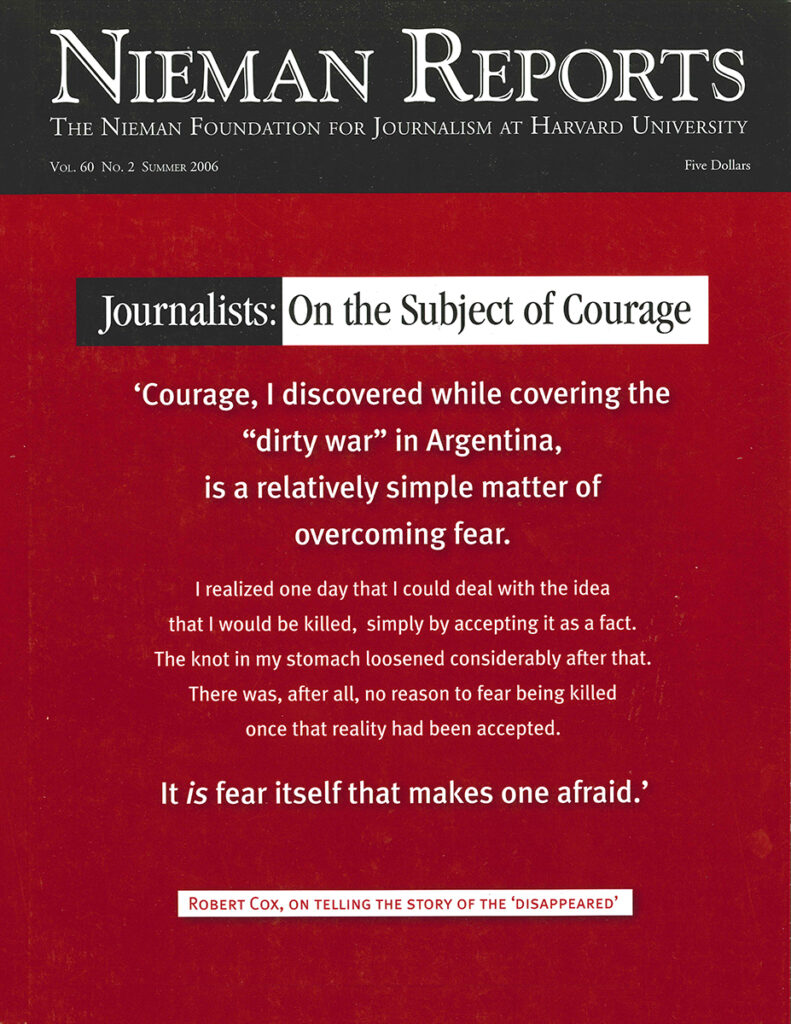INSI has joined the International Federation of Journalists (IFJ) and the European Broadcasting Union in pushing for a United Nations Security Council resolution on news media safety. This move was prompted by a U.N. resolution on the safety of humanitarian workers in conflict, yet more than three times as many news media staff are killed in warfare. A draft was presented at the World Electronic Media Forum to U.N. Secretary-General Kofi Annan, who expressed sympathy. "The United Nations ... defends your right, as journalists, to be free from physical intimidation and harm," he said. "I will continue to press governments to uphold their responsibility both to create conditions in which journalists can do their job safely and to bring to justice those who commit crimes against them."
Subsequently we were advised that it was unlikely the Security Council would pass such a resolution. It was then reduced to a clause to be included in a proposed resolution on the safety of civilians in conflict and read:
"Recognizing the critical importance of freedom of information and expression, noting Article 79 of the Protocol Additional to the Geneva Conventions which states that journalists engaged in dangerous professional missions in areas of armed conflict shall be considered as civilians, concerned by increasing evidence of acts of violence and, in particular, deliberate attacks against journalists and media staff and associated personnel, urges States to ensure that crimes against journalists, media staff and associated personnel, when perpetrated to prevent the exercise of freedom of information and expression, are properly investigated and do not remain unpunished, and requests the secretary-general to address in all his country-specific situation reports, the issue of the safety and security of journalists, media staff, and associated personnel including specific acts of violence, remedial actions taken and actions taken to identify and hold accountable those who commit such acts, and to explore and propose additional ways and means to enhance the safety and security of such personnel."
Now we've been advised that even this small gesture might be too much for the Security Council to accept. But we press on, with support emerging from an unexpected quarter, the U.N. Commission on Human Rights. Ambeyi Ligabo, its special rapporteur on the promotion and protection of the right to freedom of opinion and expression, delivered an unequivocal defense of press freedom to the commission's 62nd session in Geneva in January. Citing INSI data on journalist deaths, Ligabo said the proposed resolution "is worth careful consideration." He declared that there is a need for international guidelines and rules that could be adopted by the General Assembly concerning the protection and security of journalists and other media staff.
Subsequently we were advised that it was unlikely the Security Council would pass such a resolution. It was then reduced to a clause to be included in a proposed resolution on the safety of civilians in conflict and read:
"Recognizing the critical importance of freedom of information and expression, noting Article 79 of the Protocol Additional to the Geneva Conventions which states that journalists engaged in dangerous professional missions in areas of armed conflict shall be considered as civilians, concerned by increasing evidence of acts of violence and, in particular, deliberate attacks against journalists and media staff and associated personnel, urges States to ensure that crimes against journalists, media staff and associated personnel, when perpetrated to prevent the exercise of freedom of information and expression, are properly investigated and do not remain unpunished, and requests the secretary-general to address in all his country-specific situation reports, the issue of the safety and security of journalists, media staff, and associated personnel including specific acts of violence, remedial actions taken and actions taken to identify and hold accountable those who commit such acts, and to explore and propose additional ways and means to enhance the safety and security of such personnel."
Now we've been advised that even this small gesture might be too much for the Security Council to accept. But we press on, with support emerging from an unexpected quarter, the U.N. Commission on Human Rights. Ambeyi Ligabo, its special rapporteur on the promotion and protection of the right to freedom of opinion and expression, delivered an unequivocal defense of press freedom to the commission's 62nd session in Geneva in January. Citing INSI data on journalist deaths, Ligabo said the proposed resolution "is worth careful consideration." He declared that there is a need for international guidelines and rules that could be adopted by the General Assembly concerning the protection and security of journalists and other media staff.



